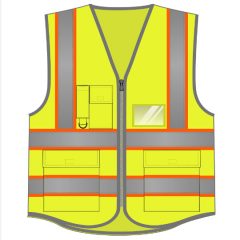The law of 5 July 1985, known as the Badinter law, sought to improve compensation for victims of road accidents who do not drive a car: pedestrians, cyclists, children, the elderly, etc.
Its article 3 states, in fact: “The victims, apart from the drivers of motorized land vehicles, are compensated for the damage resulting from the attacks on their person which they have suffered, without their fault being able to be brought against them except their inexcusable fault if it was the sole cause of the accident. ”
The courts rarely retain the existence of an “inexcusable fault”, as shown in this recent example: the evening of 29 December 2015, M me A, dressed in the dark, walking on a country road, when she fatally hit by a car. The following investigation shows that she was under the influence of alcohol and drugs and that, a few minutes earlier, she had tried to throw herself under another vehicle.
No-fault is held against the driver, Ms. B. The family of Ms. A nevertheless pursues the driver, accusing her of a lack of control, as well as her insurer, to be compensated for her “damage affection”.
Drunk and barefoot
The high court of Albi (Tarn) rejects her, after having noted “the inexcusable fault” of the victim, but she appealed. His lawyer argues that “alone, willful misconduct, of exceptional gravity, exposing its perpetrator without a valid reason to a danger of which he should have been aware, can exonerate the driver from his responsibility”.
He recalls that “the Court of Cassation only accepts the exclusion of the right to compensation in a strict manner, and in particularly serious cases such as the victim of lying down at night in the middle of a busy traffic lane. and without lighting”.
On February 18, 2021, the Toulouse Court of Appeal reversed the judgment: “Si [M me A] was walking barefoot, dressed in black, on a departmental road devoid of public lighting and where the speed was authorized at 90 km / h, it was not traveling in the middle of the road, but on the left side about its direction of travel, then facing vehicles arriving in the opposite direction, but above all, it was then under the influence of a very high alcohol level of 2.77 gr/liter in the blood, associated with significant traces of cannabis and an antidepressant, so that it is not established that she was then aware of the danger to which she was exposing herself.”
The court ordered the insurer to pay 14,000 euros to the mother of M me A and 6000 euros to each of two of his brothers.
The following case pits a cyclist, who rolls in the wrong direction, one evening, in a street in Nanterre, and the police who hit him, causing him to fracture his right arm.
In the absence of an amicable agreement on the amount of his compensation, the cyclist, Mr. X, assigns the State judicial agent. The Versailles Court of Appeal confirmed, on January 14, 2021, that his ” misconduct” cannot be qualified as “inexcusable”, given the precautions he took to be visible (reflective vest, headlights on). She also considers that this fault is not the “exclusive cause” of the accident: the driver should have checked whether a vehicle was coming from his right, before entering the street. The court confirms Mr. X’s “entire right” to compensation.
The Court of Cassation regularly recalls that it is necessary to “characterize” the existence of an inexcusable fault, as the following example reminds us. On October 14, 2012, around half past midnight, Clément, 16, and Xavier, 17, were cycling on a departmental road when they were hit by a car. Clément, thrown forty meters away, dies. Xavier is injured. Areas Dommage, the insurer of the driver, summons the parents of the two minors, to ask that they are not entitled to any compensation, because of the “inexcusable fault, exclusive cause of the accident”, that they would have committed.
The Montpellier Court of Appeal, which rules on January 16, 2018, admits the existence of such a fault: it judges that the young boys have, “voluntarily, at night, decided to take the departmental road, instead of the cycle path, to return faster, while their bicycles were devoid of any lighting, and that, given their respective ages, they were aware of the danger”.
Xavier and Clément’s parents appeal to the Supreme Court. They explain that inexcusable fault “requires the victim’s absence of a valid reason to expose himself to danger”. However, they argue, in particular, the two teenagers had chosen to take the departmental road “to avoid the dangers presented by the unlit cycle path, rutted and strewn with obstacles”, and “by granting the headlights cars sufficient visibility capability for their drivers”.
The Court of Cassation admitted, on March 28, 2019, that the elements noted by the Court of Appeal do not “characterize” the existence of an inexcusable fault. It quashes the judgment and sends the parties back to the Nîmes Court of Appeal.
